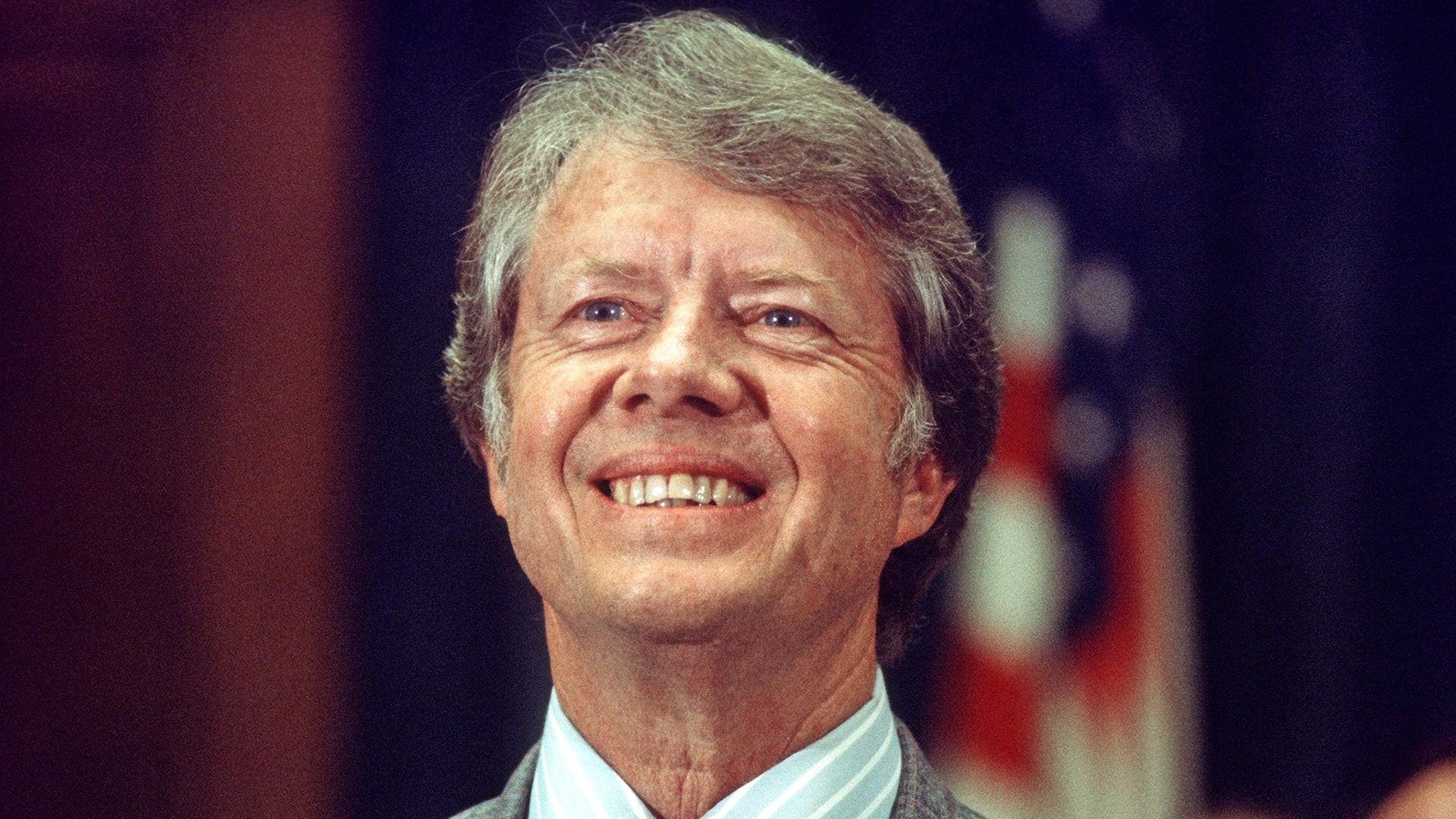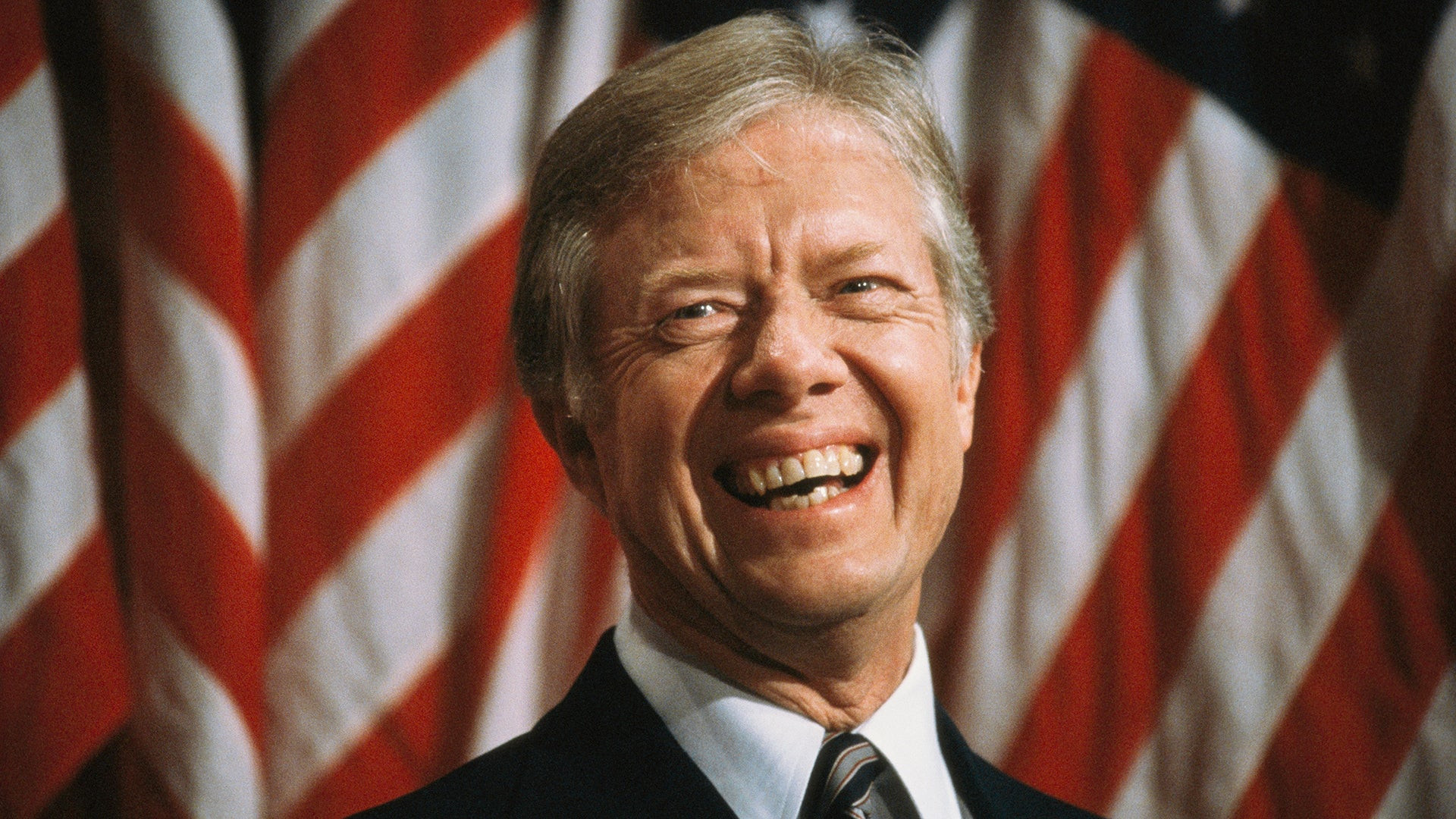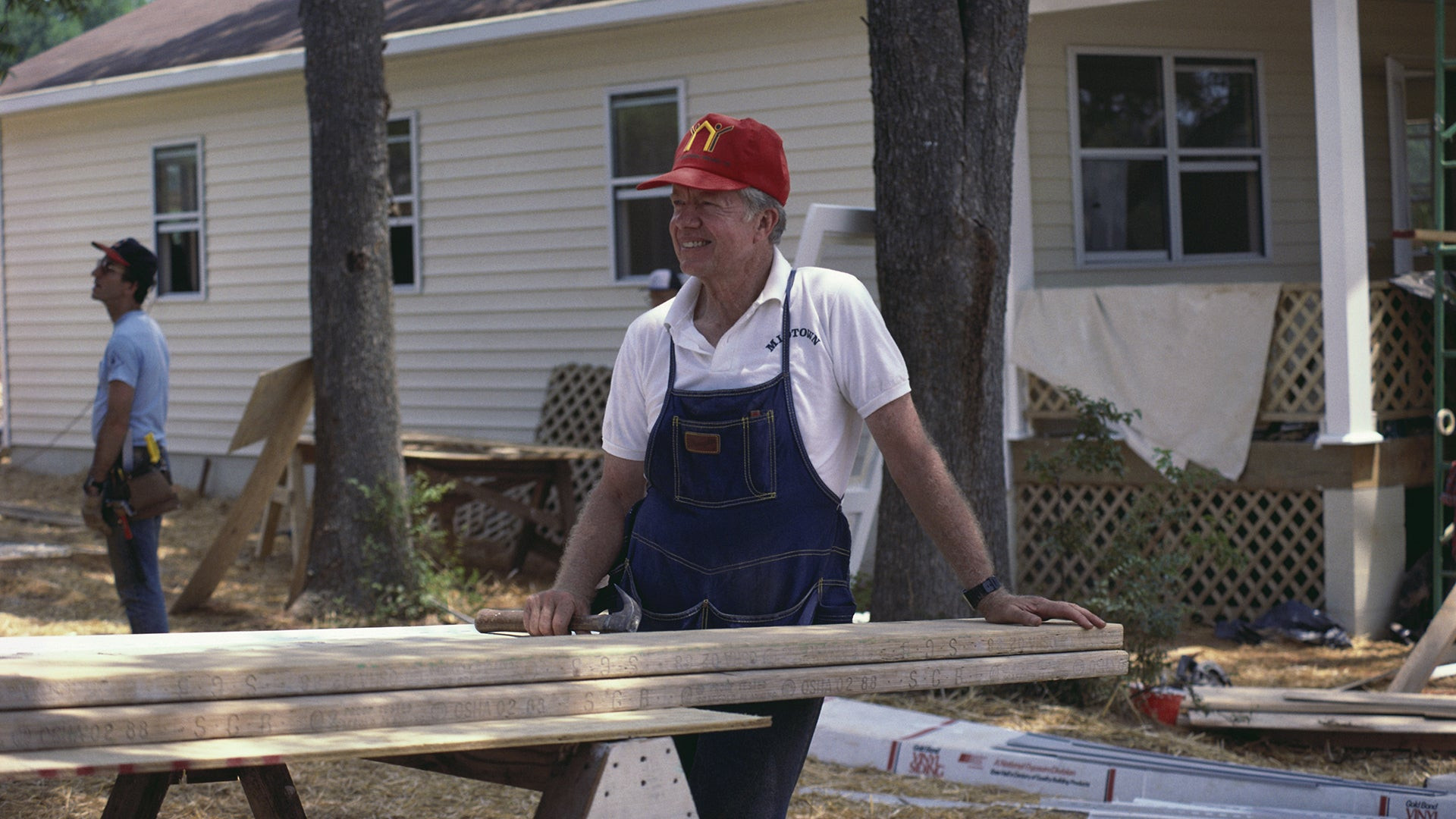Contents
Jimmy Carter, the 39th President of the United States, passed away on December 29, 2024, at the age of 100. His remarkable journey spanned from humble beginnings on a Georgia peanut farm to the presidency and, ultimately, to a globally recognized champion of human rights and diplomacy. Carter’s life was defined by his tireless work ethic, unwavering convictions, and profound impact on both domestic and international affairs.
 alt: Jimmy Carter campaigning for the Democratic presidential nomination in 1976.
alt: Jimmy Carter campaigning for the Democratic presidential nomination in 1976.
From Rural Roots to National Leadership
Born on October 1, 1924, in Plains, Georgia, James Earl Carter Jr.’s early life was shaped by the rural landscape of his family’s peanut farm in nearby Archery. Growing up without electricity or running water, Carter developed a strong work ethic and deep connection to the land. His dedication to education led him to the U.S. Naval Academy, graduating in 1946. He married Rosalynn Smith shortly thereafter, and the couple embarked on a life together that included naval deployments and, eventually, a return to Georgia following his father’s death in 1953.
Carter’s foray into politics began in 1962 with a successful run for the Georgia State Senate, marked by his persistence in challenging election irregularities. He served two terms, showcasing his commitment to reform and setting the stage for his gubernatorial campaign in 1970. As governor, he consolidated state government, championed criminal justice reform, prioritized education, and publicly condemned racial discrimination, appointing Black officials to key positions.
The Carter Presidency: A Time of Challenges and Triumphs
Carter’s relatively unknown status became an asset in the post-Watergate era. His outsider image and promise of governmental reform resonated with voters, leading to his victory over incumbent Gerald Ford in the 1976 presidential election. His inauguration on January 20, 1977, marked a new chapter in American politics.
Carter’s presidency was marked by both domestic and international challenges. He sought to restore trust in government and address economic woes, including inflation and the oil crisis. He achieved notable accomplishments, such as deregulating transportation, establishing the Departments of Energy and Education, and reducing U.S. dependence on foreign oil. However, his efforts were often met with resistance from Congress and criticism from the public.
On the international stage, Carter navigated complex relationships with the USSR, negotiated the SALT-II treaty, and oversaw the transfer of the Panama Canal. He also faced criticism for his proposed withdrawal of troops from South Korea. A defining moment of his presidency was the Camp David Accords, a historic peace agreement between Egypt and Israel, which he considered his most significant achievement.
 alt: President Jimmy Carter at a town hall meeting in California, 1980.
alt: President Jimmy Carter at a town hall meeting in California, 1980.
The Iran Hostage Crisis and its Impact
The Iran hostage crisis, beginning in November 1979, cast a long shadow over Carter’s presidency. The 444-day ordeal tested his diplomatic skills and ultimately contributed to his defeat in the 1980 election against Ronald Reagan. The hostages were released just minutes after Reagan’s inauguration.
A Legacy of Service: Post-Presidency and Global Impact
Carter’s post-presidency was perhaps even more impactful than his time in office. He dedicated himself to humanitarian work, human rights advocacy, and conflict resolution through The Carter Center, founded in 1982. The Center has observed elections, promoted public health initiatives, and nearly eradicated guinea worm disease. His tireless efforts earned him the Nobel Peace Prize in 2002.
 alt: Former President Jimmy Carter working on a Habitat for Humanity house in 1988.
alt: Former President Jimmy Carter working on a Habitat for Humanity house in 1988.
Conclusion: A Life Dedicated to Making a Difference
Jimmy Carter’s life exemplified a commitment to service, both to his country and to humanity. From his early years on a Georgia farm to his post-presidency work on the global stage, he strived to make a positive impact on the world. His legacy as a humanitarian, diplomat, and advocate for peace continues to inspire.